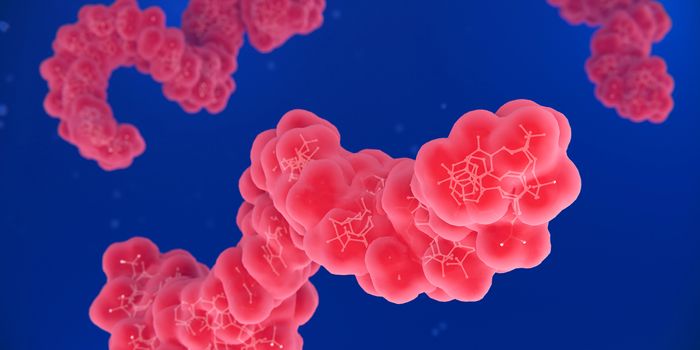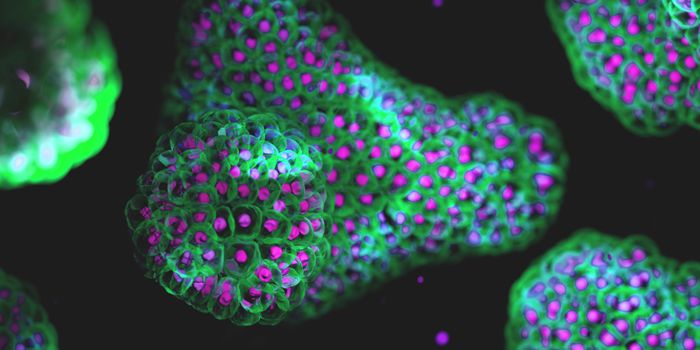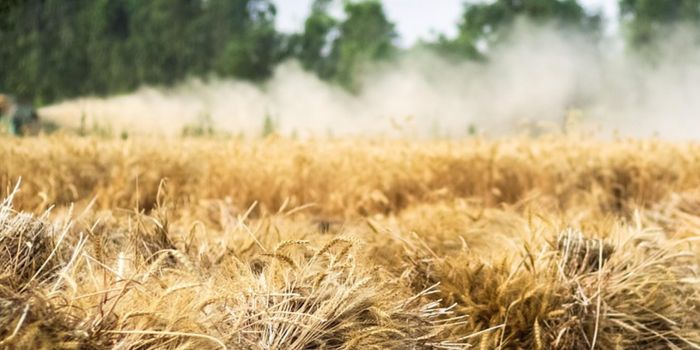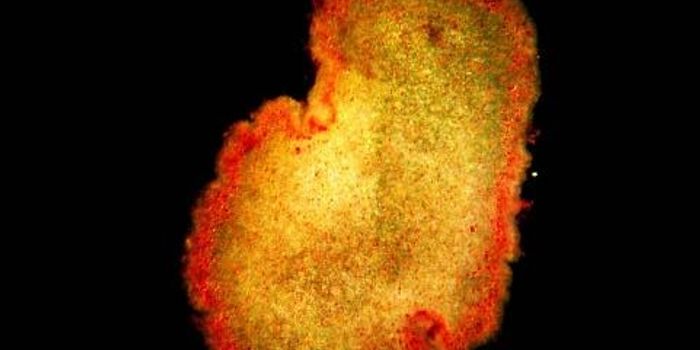Does a Common Amino Acid Trigger Arthritis?
There are a variety of different type of arthritis, an autoimmune disorder that affects the joints. Arthritis has also been associated with several other autoimmune conditions like inflammatory bowel disease, and there can be many causes for the condition. Scientists have now determined that an arthritic disorder called spondyloarthritis can arise when gut microbes break down a common amino acid called tryptophan, which is found in many foods. This process creates a molecule known as indole, which may lead to inflammation and promote arthritis. The findings have been reported in the Journal of Clinical Investigation.
Many foods including wheat, dairy products, fish, meat, nuts, soy, beans, and some fruits contain tryptophan, which has many functions in the body. It is used as a building block for proteins, for example, which send signals and carry out many essential biological functions. Since the body doesn't produce its own tryptophan, we have to consume enough of it in the diet.
Previous research has shown that microbes in the gut can create byproducts from tryptophan, and while some of them may be anti-inflammatory, other have been associated with inflammation, noted study co-author Kristine Kuhn, MD, PhD, the Scoville Endowed Chair and head of the Division of Rheumatology at the University of Colorado Anschutz.
"We're the first to highlight which products are contributing to inflammation, and how they are doing that," said Kuhn.
The researchers had observed that some spondyloarthritis patients also had changes in their gut microbiome that revealed unusually high levels of indoles. Gut bacteria generate indoles from tryptophan, explained Kuhn. A mouse model of arthritis displayed similar changes.
This mouse model was exposed to antibiotics to eliminate their gut microbes, causing them to lack indole, and the no longer has symptoms of arthritis. The investigators also wanted to know what happened when the mice had a microbiome, but only got very low levels of tryptophan in their diet. In this situation, the microbiome was once again unable to produce indole, and the mice did not have symptoms of arthritis, said Kuhn. "So, two different ways, we showed that it's tryptophan that's broken down by the microbiome into indole."
Additional work revealed that he presence of indole led to the production of inflammatory T cells that were autoreactive; they attacked cells of the self. There were also fewer regulatory T cells that promote a balanced immune system, leading to the production of antibodies that could cause disease. In the presence of indole, antibodies became more inflammatory.
The researchers suggested that it may be possible to treat arthritis by interfering with the production of indole.
"If tryptophan hits our body's cells, it tends to go get broken down into anti-inflammatory products versus when it hits the bacterial cells and goes more inflammatory," said Kuhn. "The ways we think about how this could lead to therapies are: How do you keep that balance tipped so that tryptophan goes towards that anti-inflammatory pathway? How can you manipulate intestinal bacteria to tip that balance? That's where we're interested in going in the future."
As far as diet goes, Kuhn suggested that lean nuts and healthy fibers from fruits and vegetables seem to promote health in the microbiome, while diets higher in processed fats and sugars appear to encourage inflammation. More research will be needed, however, before we know whether it is possible to relieve symptoms of arthritis with dietary changes.
Sources: CU Anschutz Medical Campus, Journal of Clinical Investigation









